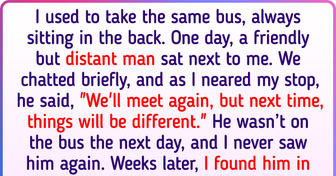13 People Whose Lives Fell Apart Like a House of Cards

You run through the night forest for more than an hour. You’re even faster than a cheetah. You’re not tired or cold. You hear a mouse rustling in the roots of a tree and catch all the smells of the forest. With night vision, you see a bird in the night sky. You can go for months without food or water. Gills allow you to swim underwater freely.
This is how evolution made humans in a parallel world. Here, they’re ideal organisms prepared for anything they might meet in the wild.
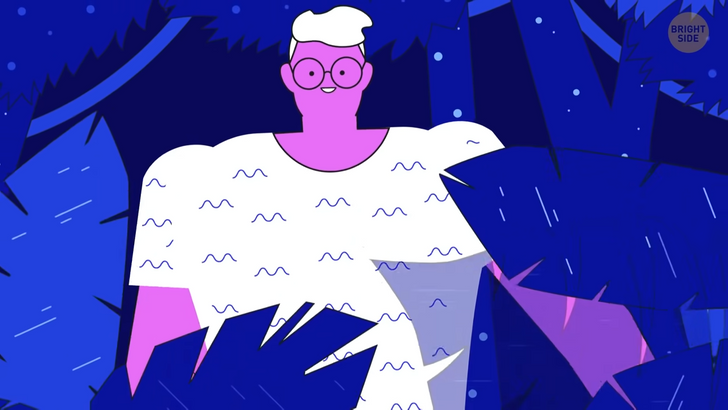
In our world, things are more complicated. We evolved, but didn’t always get stronger. Humans only survived because they adapted and changed the world around them. A human only has 32 teeth. When they fall out, they no longer grow.
But evolution doesn’t stop. Our food has become softer and more nutritious. You don’t need to chew it for a long time. The new diet reduced the jaw and enlarged the brain. As a result, there’s no room left for the 4 teeth that are closest to the joint.
We call them wisdom teeth. In the future, we’ll have only 28 teeth, and even today, 35% of people don’t have the wisdom teeth.
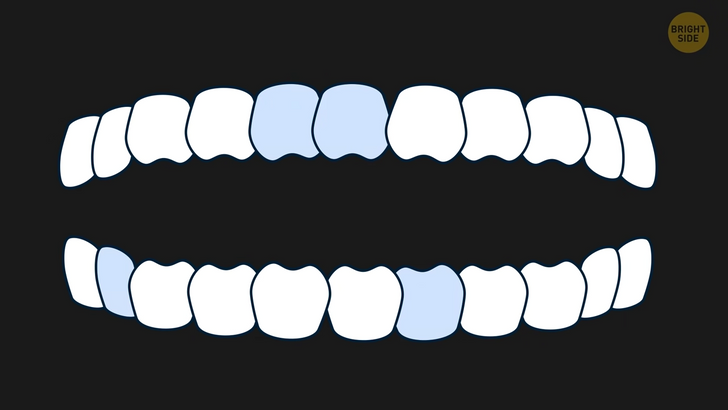
Homo sapiens is the only mammal to have a chin. This is the protrusion along the lower edge of the jawbone. Even our relatives — gorillas and chimpanzees — have their jaws slanted inward.
Anthropologists think that the chin is a result of reduction of human face. Perhaps in the past, the chin supported our powerful jaw and enhanced our strength. Over millions of years, the face has shrunk, but the chin has remained.
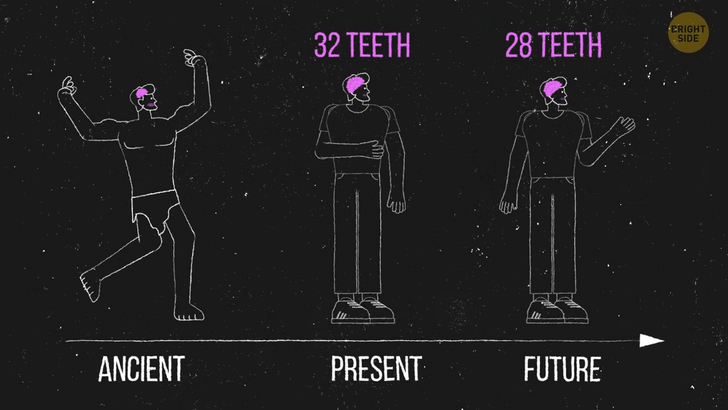
Put your hand on a flat surface. Connect your ring finger and thumb. Bend your wrist and you’ll see the palmaris longus. 15% of people don’t have this muscle already. It doesn’t affect the grip strength and has lost its meaning today. Millions of years ago, it allowed our ancestors to deftly climb trees. Evolution deprived us of this useful skill, but the reminder of it remained with us.
Dogs, horses, monkeys and many other animals can move their ears. This allows them to hear better and communicate with each other. Humans have a long flexible neck, and evolution has left them without this ability. Still, 20% of modern humans can do it. This is another reminder of a time when we weren’t much different from other animals. 10% of people have a Darwin’s tubercle in their ear. In the past, we had pointy ears looking like the modern macaque’s ones, and this little bump is the proof.
When an emperor penguin hatches eggs, it doesn’t eat for 115 days. Scorpions can stay hungry for a whole year. Evolution hasn’t given humans a camel-like hump of fat or the ability to hibernate like a bear. Every morning, our ancestors woke up and fought for their survival. We need a lot of energy for this, so we have to eat every day. This isn’t very convenient. Especially when your food isn’t sold in a supermarket but runs away from you through the forest or field.
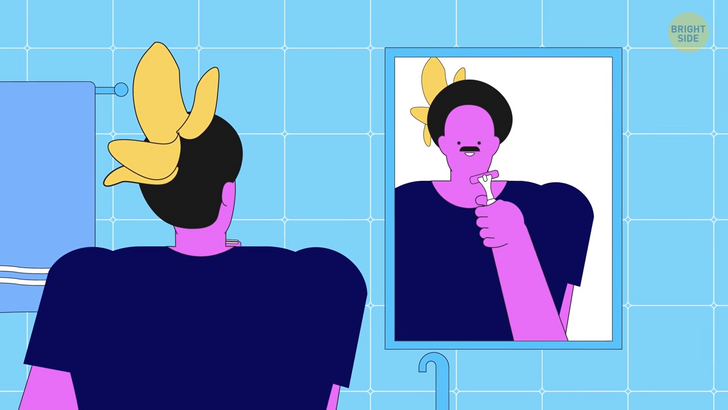
In the human brain, at any given moment, 100 billion neurons work. Thanks to this, you have a good memory and can talk. This is essential for survival. A big brain has a flaw. For neurons to work, it needs a lot of fuel. It makes up just 2.5% of body weight, but consumes 20% of its energy. In two hours of playing chess, a grandmaster burns 560 calories. A professional tennis player will spend the same amount of energy in a single hour.
Big brains make us weak. Even a small chimp is much stronger than a human. Why do you need muscles if you no longer swing from branches? But you need a big brain to negotiate and cooperate with other people. We got weaker, and we liked lying on the couch more and more. This is a comfortable position for thinking. At night, our ancestors were especially vulnerable. When you sleep in a new place, the left side of your brain is more awake than the right one.
This brain reaction is called the ’first night effect’. This is an ancient reaction of the body to the dangers that awaited a human in the dark. 40-60 million years ago, evolution gave us yet another fear. We’re born with fear of being bitten by a snake or spider. Apparently, these animals were the main danger to the first primates.
Anthropologists say we became runners 2 million years ago. Broad shoulders make it convenient to swing your arms and keep balance. A special ligament extends from the spine to the back of the head. It stabilizes the head while running.
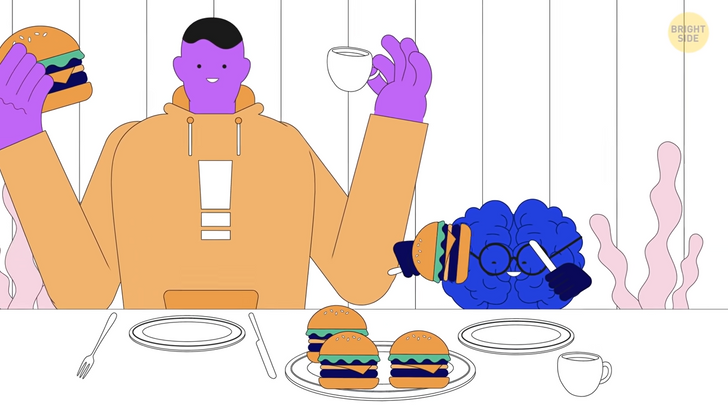
No primate has strong gluteal muscles. They only turn on to full power while you’re running. Hairlessness and 3 million sweat glands keep our bodies from overheating. People are perfect runners. But evolution has made us slow.
You’ll never overtake a chimp on a short distance. And that’s not mentioning cheetahs. They accelerate to an incredible 70 mph. But almost all land animals are sprinters and don’t run for more than 10–15 minutes. Humans are adapted for long distances.
Walking on two legs helped our ancestors solve many problems. They freed their hands to carry food or tools. Two legs and a straight back made our ancestors larger and even scarier for other animals. When you stand on two legs, you’ll quickly see a saber-toothed tiger, which is waiting for you in the tall grass of the plains or the African savanna.
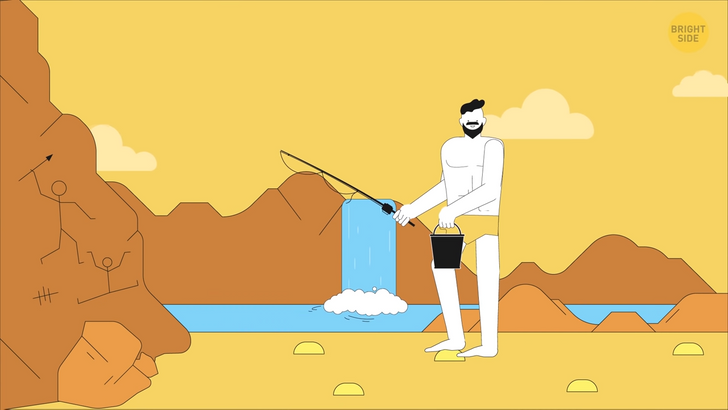
Your body weight is distributed over only 2 limbs and this has consequences. You can calmly walk down the street, stumble, and get injured over that. Consider this our payment for upright walking. So why do we need toes? Certainly not to hit them on the furniture!
When our ancestors lived in the trees, toes helped them cling to branches. Imagine you can work at the computer, draw pictures or cook scrambled eggs — all with your feet. Cool, but good old evolution has deprived us of this skill.
Today, we’re not sitting in the trees, but our feet remain flexible. Come to think of it, hooves would be more suitable for us. They’re durable and don’t need shoes. But until we evolve again, our feet remain fragile. Either of them has 26 bones. This doesn’t make our walking or running any safer.
You go to the cinema, take your popcorn basket, and start munching on it in anticipation of a great couple of hours. But then you start choking. Those few minutes of coughing and involuntary tears seem to last forever.
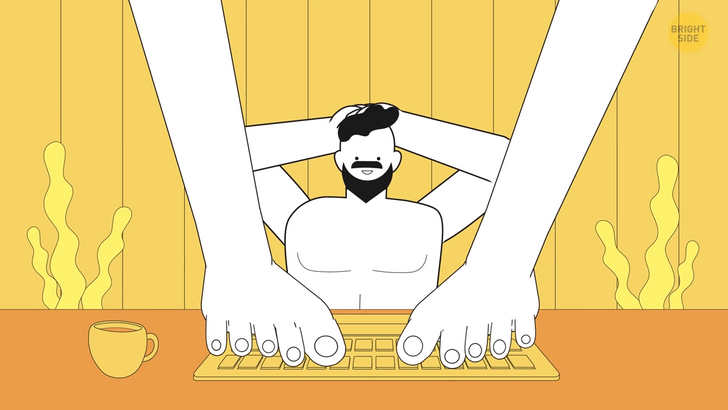
The human is the only mammal that can choke on its food. We can’t eat and breathe at the same time. The reason for this is the structure of our vocal apparatus. Your larynx is down below, thanks to which you can talk. But not while eating!
Goose bumps, horripilation, goose flesh — these are the names of the reflex that makes your skin not smooth but bumpy. This happens when you’re cold or scared. Greetings from the Stone Age! Our ancestors were covered in thick hair. When they got scared, the hair follicles rose. This made them large and menacing for other animals.
This natural reaction warmed the body as the air grew colder. The body of modern people no longer has long and thick hair. But if that movie is really scary, or you forgot your jacket in the evening, goose bumps still appear. Bears, hedgehogs, bats, some turtles, fish and insects. All these creatures have one thing in common: they hibernate.
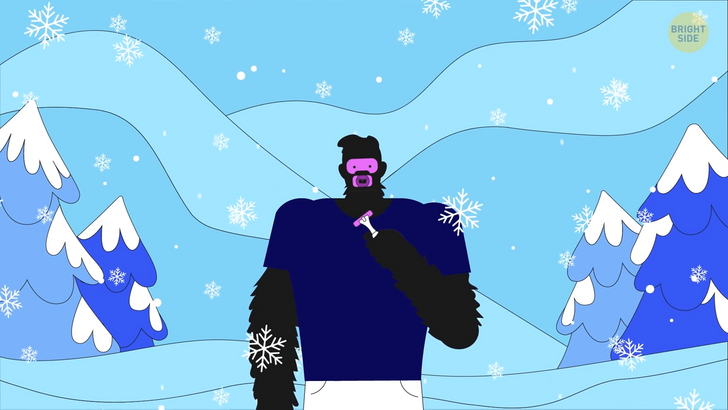
Scientists claim that our ancestors were also on this list. In a cave in the north of Spain, researchers found fossilized bones of ancient people. The analysis showed that 500,000 years ago, humans could spend several months hibernating, similar to bears. Thanks to this, they survived the ice age. Wow! How I miss this skill!
Our eyes allow us to see dust in the air and huge mountains on the horizon. We see the world in color and recognize each other’s faces. And when it gets darker, our vision quickly adapts to new conditions.
But we don’t see well in the dark. Evolution hasn’t given us the sight of a tarsier. This primate is the size of a baseball and can see perfectly in the dark. Tarsiers could easily catch a beetle flying through the night forest. Still, I wouldn’t want my eyes to take up most of my face. And beetles are actually not among my favorite after dark snacks. How about you?









